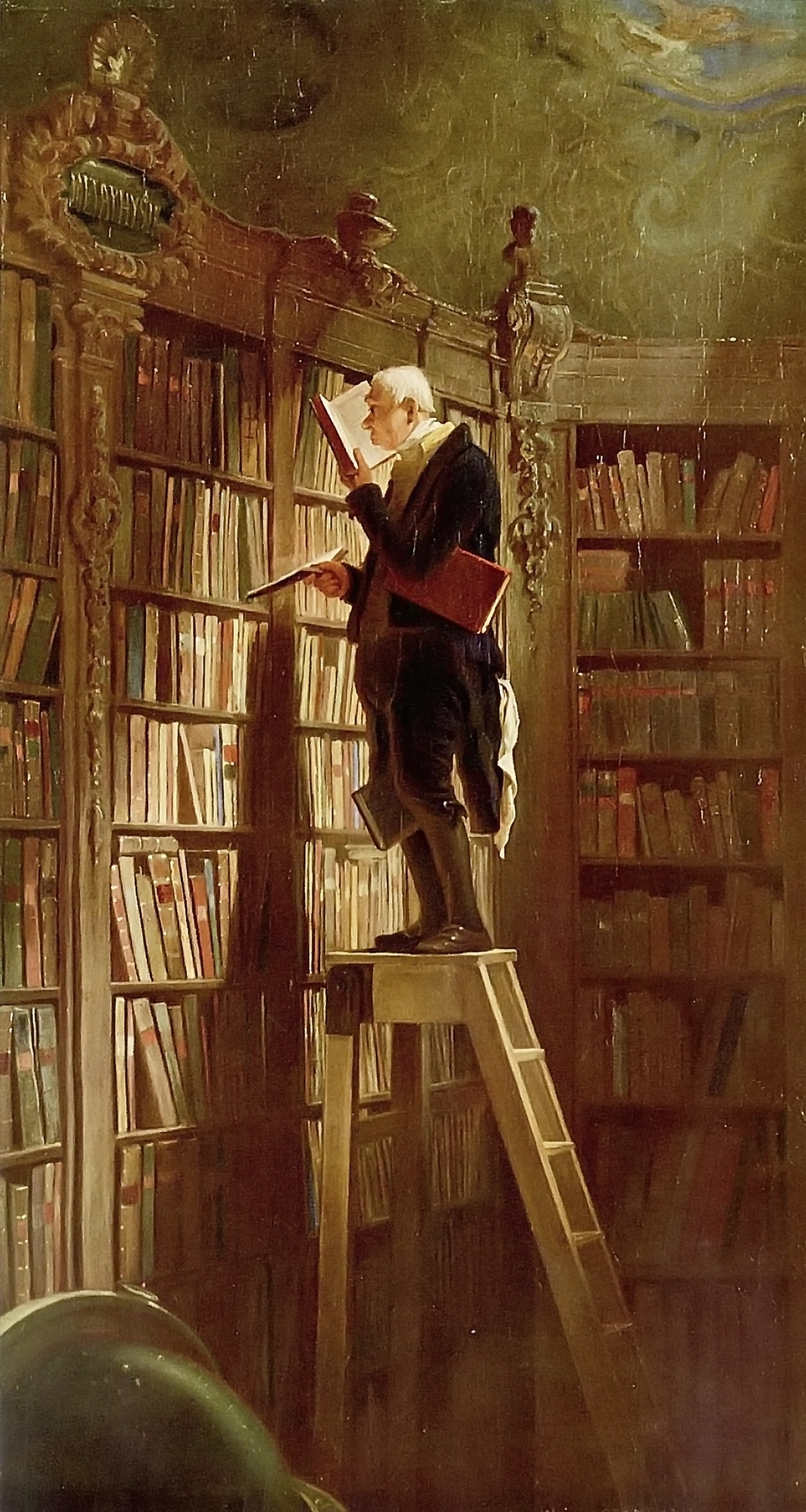
H. B. Gray
On Cruelty to Animals
Journal of Education; Zoophilist and Animals’ Defender
「1903」 Dr. H. B. Gray, “On Cruelty to Animals 「Address to the Humanitarian League, May 05」,” Journal of Education 25 「Google Books」(1903-Jun): 385-386; Zoophilist and Animals’ Defender 22-23 「Google Books」 (1903-Jul-01): 37.
Our grandfathers have reminded us of the not distant time when it was gravely argued that slavery was a divine and beneficent institution. And not forty years ago our great cousins across the Atlantic began to realize that God Almighty did not necessarily make the black man to be the chattel of the white. Therefore, if this is the case with humanity generally, is it not likely to be the case in regard to cruelty and outrage to animals?
________
Dr. H. B. Gray, On Cruelty to Animals
To the Editor of the Journal of Education
SIR,—As the subject of animals’ rights is much to the front in these days, and as moral questions of this sort have an interest for instructors of the rising generation, may I ask if you could do me the kindness to publish an address of the Rev. H. B. Gray, D.D., Warden of Bradfield College? The address was delivered on May 5 at a public meeting, held by the Humanitarian League, at Westminster Palace Hotel, to support Mr. Corrie Grant‘s Cruelty to Wild Animals Bill, now before Parliament. This Bill aims at the suppression of tame-deer hunting, coursing previously captured rabbits, and shooting birds from traps.
We who are working for the enactment of this measure should be greatly pleased to secure, if possible, the sympathy and co-operation of educationists of all kinds in the matter.— Believe me, yours truly, (Rev.) J. Stratton, Hon. Sec. of the Sports Department, Humanitarian League. Wokingham, Berks, May 21, 1903.
Ladies and Gentlemen,—Most of us, I think, who have had the privilege of listening to the eloquent appeal and the melancholy statistics of Colonel Coulson, when he moved the resolution which stands in our joint names—
“That this meeting is strongly of opinion that the time is ripe for the suppression by law of certain forms of spurious sport, such as the hunting of carted deer, the coursing of previously captured rabbits, and shooting birds from traps. It furthermore desires that the Prime Minister should be respectfully asked to receive a deputation to plead that Government facilities may be given for the enactment of the Prevention of Cruelty to Wild Animals Bill”
—cannot fail to have been staggered to think that, at the beginning of the twentieth century, atrocities such as he has described should be tolerated in this country; for, whatever title England may have in other aspects of civilization to pre-eminence, at any rate she has always been supposed to be first as “mistress of mercy” and chief guardian of the sanctity of life. There is something in the character of Englishmen, we are generally told—and, I think, told with truth—to which defencelessness and weakness irresistibly appeal. Is it not, then, inconceivably strange that there does not exist in the Statute Book of this land at present any well defined law completely protecting animals from outrage and cruelty—a protection which is expressly provided in the case of the weak and helpless of our own human kind ? I think, if you will allow me to do so, I may be able to explain why our wonder should be less if we reflect on certain general causes drawn from history and manners.
First, we must remember that humanity is a very modern virtue indeed. Whether we look to pre-Christian times, or whether we look to the centuries which followed the birth of our Divine Master, it would seem an irresistible conclusion that humanity has not kept in touch, or progressed in equal degree with, knowledge and arts and culture generally. Not to mention the gladiatorial spectacles of ancient Rome and the terrors of the Inquisition, let us cast our eyes back but one hundred years, and we shall reflect that it was not until the nineteenth century that religious England awoke to the fact that the enslavement of our fellow-creatures was a terrible blot on the escutcheon of a Christian nation. Our grandfathers have reminded us of the not distant time when it was gravely argued that slavery was a divine and beneficent institution. And not forty years ago our great cousins across the Atlantic began to realize that God Almighty did not necessarily make the black man to be the chattel of the white. Therefore, if this is the case with humanity generally, is it not likely to be the case in regard to cruelty and outrage to animals?
Then I think there is another cause which comes into play, and which proves to us that we need not so much wonder at cruelty to animals still going on ; and it is this: Side by side with the prerogative of mercy which we claim to be ours, and sometimes running counter to it, there is also that love of sport, as sport, whatever the character of the sport may be, which seems to be bred in the bone of every Englishman. Speaking as the head master of a public school for the last twenty years, I am bound to say that I have observed in the character of the young an increasing enthusiasm for sport in their minds such as leads me to feel that, indirectly, that fact also has been a bar to legislation on this important subject. The passion of sport has become such an intense sentiment in the national mind in the last quarter of a century that the mere suggestion that we should banish any kind or form of sport is generally met with coolness or indifference.
There is still a third point, and it is this : While domestic animals have been protected by law for the last fifty years, there is no complete penal code in the case of wild animals at all. Now, though it would seem at first sight an extraordinary thing that there should be such inequalities in our legislation with regard to the treatment of wild animals when compared with domestic, yet the cause is not very far to seek. It is here : Domestic animals are property, and when you mutilate or kill what belongs to me my conscience as well as my pocket immediately suffers. My conscience is sometimes elastic ; my purse is not : therefore it comes to be that on the Statute Book of this land we find, as far back as 1849 and 1854, enactments regulating the treatment of domestic animals, and yet not even now is there any complete law to protect wild animals at all. In other words, Ladies and Gentlemen, it is a criminal offence to worry a cat, but is a gallant diversion to torture and break up a hare or a rabbit which has been captured beforehand; it is a gallant diversion to mutilate a carted deer, and it is a gallant diversion to shoot caged pigeons from a trap.
Then, fourthly and lastly, there comes in custom, which has done so much to prevent legislation on this subject. I would rather not express any irresponsible opinion of my own in this connexion; I would rather quote the eminent author of that great book called “The History of European Morals.” That author says something like this: “There are many people who would be incapable of committing a barbarous and cruel act which custom has not consecrated, and who yet are daily and hourly guilty of equally cowardly and wicked acts to the enormity of which long custom has blinded their eyes and hardened their hearts. We have only to look at the shambles at Hurlingham and at what I may call the cesspool of Europe, Monte Carlo, to see what congregations the spurious forms of sport bring together. There are the “curled and oiled darlings” who go down, after lodging over the Park railings all the week, to shoot pigeons at Hurlingham on the Sunday, and there are those people, whom I can hardly describe in this room, who congregate to see the massacre of the same hapless birds at Monte Carlo. It may be the case—and I think, perhaps, it if the case in this particular aspect of civilization—that we are not much better than our ancestors. We boast ourselves (in the words of Homer) to be more refined than those who have gone before, but I cannot think that we are much changed. I believe, myself, that, if we had lived in the days of Queen Elizabeth, we should not have been very much surprised to hear that our good sovereign had attended a bear-baiting exhibition at Whitehall immediately after hearing a sermon at St. Paul’s. I think, if we had lived in the days of Charles II., we should not have held up our hands in horror if we had heard of a parly being made up to go and see women publicly whipped. If we had lived in South Carolina half a century ago, we should have been indifferent spectators when our fellow-creatures of a different colour from ourselves were hunted by bloodhounds and left to die of starvation in the morasses. No ; I do not think we are in a very much better moral position than those ancient Jews who, if you remember, claimed that they would not have been guilty of the iniquities of their forefathers if they had lived in their days, but to whom the Master, with scathing irony, replied: “Ye are witnesses unto yourselves that ye are the descendants of those who killed the prophets.”
Before I sit down I should like to say one or two things of a more or less personal character. The circumstances of my life have not predisposed me to take any particular side in this matter. As a boy I was not brought up to regard the mutilation of animals or the taking of animal life as a matter which was open to any criticism at all. In my youth I hunted without any arrière pensée; I enjoyed that pastime without remorse. I frankly confess that it was not any sudden change of mind, but a gradually increasing belief in the undesirability of it, as it affected my feelings and sensibilities towards humanity and mercy, that made me give up this sport. But there was something more which made me give it up, and that was my increasing feeling on the question of blood-sports as an educationist. After a close, patient, and affectionate study of boys’ nature, I know from actual and painful experience that to teach boys that there is harmlessness in blood-sports cruelly pursued is doing a most desperate outrage to their characters. Having that feeling very strongly, I have always tried, as far as I possibly could, to support the movements about which we are talking to-day. I should like just to say that in taking this view I do not condemn persons. I do not condemn as sinful those who enjoy galloping after a fox, or those who enjoy walking through a cover, or those who, with manifest gusto, desire, because it is a fine day, “to go out and kill something.” I condemn no man, but I condemn things. I maintain that, as man has dominion over the animal world, he has a most perfect right to kill in order to eat and be clothed. But, while I say it is good and right to kill, I hold that it is neither good nor right to inflict, and take pleasure in inflicting, useless and prolonged suffering on any of God’s creatures whatever. I cannot see that the right to torment is in any way involved in the right to slay. And I can only hope that in the progress of this measure through Parliament the public at large and the Legislature, which I hope will pass the Bill, will be led to think of the awful tortures that spurious sport has inflicted on the animal creation. I hope they will think sometimes of the mutilation of carted deer and the pangs of the hart thirsting for the water-brooks. I hope they will consider the cries of captured rabbits let loose to be mangled by dogs with no possibility of escape. I only hope there will come within their remembrance some echo of that grand epic of the humanitarian cause consecrated by the genius of Samuel Taylor Coleridge in the last century—I mean the epic of “The Ancient Mariner.” Although the direct object of that great poem was not to inculcate love of animals, yet the moral is all the stronger because that was only its secondary aim. You may remember how the harmless albatross is slain by the man, and how, after the murder, a curse fell on those who sailed in the fated ship, till the murderer at last awakes to the heinousness of his desperate deed, and is led to the revelation with which I should like to conclude my words to you this afternoon, and which I would leave with you as one of the highest and purest expressions of the religious spirit:—”
He prayeth well who loveth well Both man and bird and beast;…
He prayeth best who loveth bestAll things, both great and small,
For the dear God, Who loveth us, He made us all.



